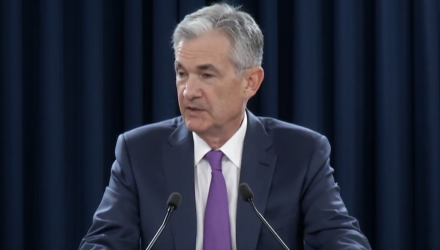“I think if you look at the aggregate performance of the U.S. economy, it’s hard to see much happening at this point,” said Powell. “You can look at it the other way and ask ‘If all the tariffs that have been announced are applied, what would be the affect at the aggregate level?’ They’re still relatively small.”
Long-term effects are cause for concern
Powell did mention that loss of business confidence that could reduce investor capital and also the long-term effect on the financial markets are reasons that could bring trade wars under heavier scrutiny by the Federal Reserve. While Powell was quick to dismiss any short-term effects the tariffs have had thus far, he did mention that its long-term effects are cause for concern.
“More than anything, I would worry in the longer run where this is going,” said Powell. “If the end place we get to is lower tariffs, then that would be good–trade generally supports productivity and higher incomes.”
“If this inadvertently goes to a place where we have widespread tariffs for a long time in a more protectionist world, that’s going to be bad for the United States economy.”
With major retailers saying that the tariffs could increase prices on consumer goods exponentially, there has been increased fear that consumer spending could be negatively affected and as a result, dampen economic growth.
“It’s a concern, it’s a risk,” said Powell.
However, without hard data to substantiate these concerns as a result of the trade wars, Powell could not definitely say that tariffs are to be dealt with head on just yet.
“Until we see it in the numbers, it’s hard to say how one would react,” added Powell.
For more trends in fixed income, visit the Fixed Income Channel.

